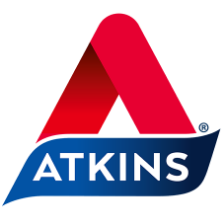- Home►Get inspired►Articles►High Protein Foods
High Protein Foods


Scroll directly down to

Proteins are large molecules comprising strings of amino acids which are vital for every living being. They are a structural component of human tissue and our bodies and cells require them to function.
Being part of our skin, bone and muscles, it’s not surprising that they account for about 20% of our body weight. They are often described in terms of machines or engines as they form part of our cells that make us function. In terms of diet, they form part of the three macronutrients that we all need; the others being fat and carbohydrates.
Start on Atkins today and receive support, tips and meal plans for free!
How Much Do We Need?
Many variables can impact on the amount of protein a human body requires to function well.
Age, gender, weight, muscle mass, whether you exercise and a person’s health being among the key ones.
However, 1lb of protein per 1 Kg of body weight is sometimes used as a rough guide to minimum protein requirements.
Why do we need to eat it?
While the human body is perfectly capable of producing certain amino acids, there are many essential ones which can only be acquired though eating.
Animal and Plant Proteins
Protein can be gained from eating animal products and vegetables/pulses. But there is a difference. Humans are animals so it’s logical that when we eat other animal proteins we get all the amino acids we need to create protein. Vegetable or pulse proteins are usually seen as incomplete proteins and lacking some of these essential amino acids which is why vegetarians or vegans are encouraged to eat a wide variety because as a group they can encompass all essential amino acids.
Key High Protein Foods
Beef – steak fillets being the largest source per gram
Chicken – chicken breast conventionally being the most protein rich
Turkey – ditto turkey breast
Fish – most fish are good source of protein but especially salmon and tuna
Pork – tenderloin usually seen as the most protein rich
Diary – eggs, yoghurt, milk and all cheeses are protein sources
Beans/Soy –all beans, plus tofu, soymilk and split peas
Nuts and seeds – all good non animal sources of protein
Achieve your goals with Atkins
Rather you would like to lose weight or to feel fit, Atkins will help you to achieve your goals!
Join now
